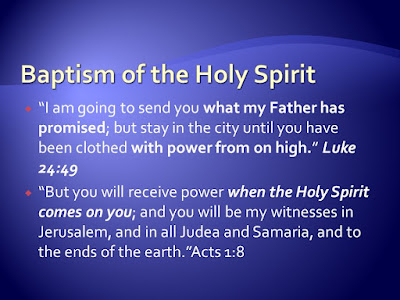Homily for the Sunday of the Ascension of Our Lord, May 29, 2022. Acts 1:1-11, Luke 24:46-53. Theme: A Promise and A Power
Today’s Solemnity of the Ascension of Jesus into Heaven is the crowning event of the whole story of the Incarnation, that is, of God becoming human. Having successfully completed his mission of healing us from sin and rescuing us from death by his Cross and Resurrection, Christ goes back to where he came from. He takes up once again the divine powers he had left behind when he came to planet Earth. You see, to truly heal and save the human person from the inside out, Jesus had to become limited and vulnerable just as we are. Otherwise his humanity would be just play-acting or a sham. But now at the Ascension, Jesus returns to the Father and puts on once again, so to speak, the glorious robes of his divinity.
The Ascension is like a supernatural gold medal for the human race, because for the first time in our history a human being is enthroned in Heaven, sharing the very life and majesty of God! And so we see that the Ascension isn’t just telling us something wonderful about Jesus. It’s saying something incredible about us - about you and me! The Ascension proclaims that we who are united with Jesus by baptism are also destined like him, to be raised up to a place of glory and honor. But also like him, we must first fulfill our God-given mission on planet Earth!
Jesus speaks to us about this mission in today’s readings when he says that we are to be his witnesses. As we know, a witness is someone who gives testimony to the truth. And we do this about Jesus both in the way we live and by the words we speak. This can often take a lot of faith and a lot of courage but not to worry, because the Ascended Jesus has pledged to send us a Helper to equip us for our mission. We just heard him say this in today’s readings that we will receive the “Promise of the Father” who will fill us with “power from on high” and that this “baptism in the Holy Spirit” will provide us with all that we need to carry out our mission.
Jesus calls the Holy Spirit the “Promise of the Father” because in the Old Testament God promised to pour out the Holy Spirit upon his people through the Messiah. This immersion or baptism in the Spirit would change those who experience it, transforming them from the inside out. To be baptized in the Holy Spirit means that we will become consciously aware of God’s love and presence in our lives. It manifests itself in us by means of a spiritual awakening or a renewal in our hearts that results in a firm personal decision to make and to keep Christ as the center of our lives. We Catholics often call baptism in the Holy Spirit a reversion or conversion experience.
Jesus also calls the Holy Spirit a Power. We heard him say, “you will be clothed with power from on high…” and “you will receive power when the Holy Spirit comes upon you, and you will be my witnesses…” We all know that power means the ability, energy and strength to do something that is beyond our normal capabilities. This Power that is the Holy Spirit will give us the ability to do things that we do not think we are capable of doing. Its purpose is to enable us to give credible witness to Jesus among those with whom we live, work and socialize. And it manifests itself in different and various ways in the lives of ordinary Christians like you and me.
Both the New Testament and the lives of believers throughout the centuries show us that the power of the Spirit can work great signs and wonders through us ordinary Christians. Why does the Spirit do this through us? So that we can give credible and tangible witness to the truth of Christ and the power of his Gospel to change and transform those who believe. The Power-from-on-high we are given can enable us to do such things as invoke physical healings and speak words of knowledge that touch the listener’s hearts.
(In the audio version, I now tell 2 true stories about the Spirit's power to bring about a physical healing and a word of knowledge)
It is extraordinary things such as these, brought about by the faith of ordinary Christians, that can cause people to pause and consider the Message that we preach. The Church has always been adamant that it isn’t just the apostles or saints who work such wonders. The Bible makes it very clear that ordinary Christians like us - like you and me - can do extraordinary things if we trust in Christ to act through us by the power of the Spirit within us.
So, let’s spend the coming week between Ascension and Pentecost Sunday praying for a renewed outpouring and manifestation of the Spirit in our lives. Let’s pray for the grace to truly embrace the “Promise of the Father” who was first given to us at Baptism. Let’s pray for the grace to allow this “power from on high” that was bestowed on us at Confirmation to become a living reality in our lives. If we prepare for Pentecost with an open mind and heart, sincerely asking the Father for a new baptism in the Holy Spirit, then I assure you that by the time next Sunday comes around, we will be ready to claim that Promise and ignite that Power in ways that we have never imagined or experienced before.




